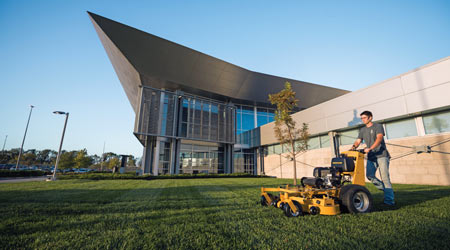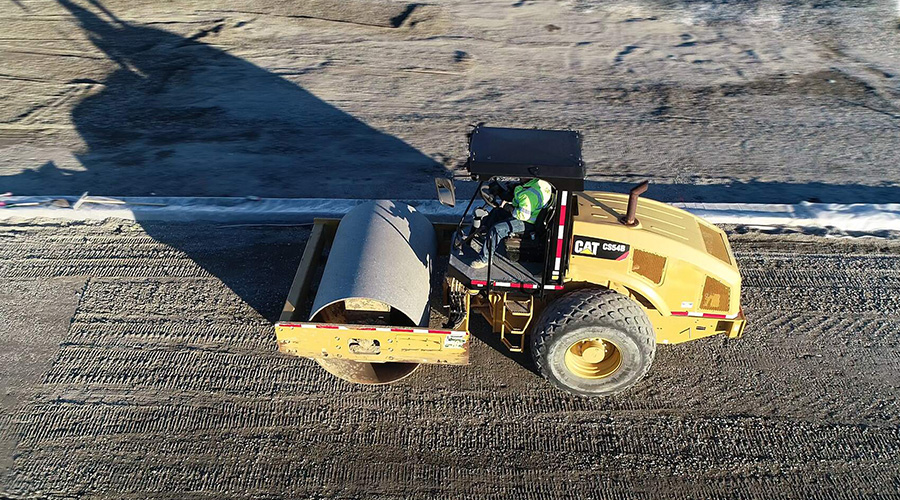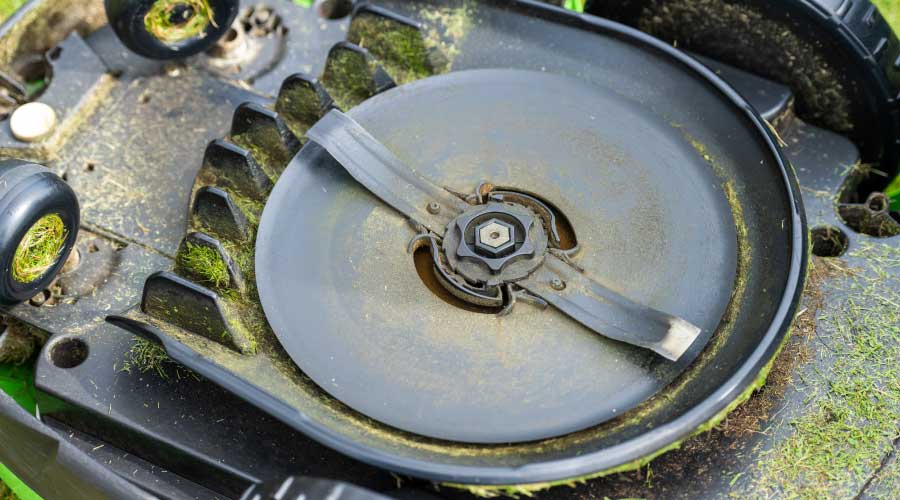 Recent technological advances in commercial mowers related to performance, fuel efficiency, comfort and stronger regulation of air and noise pollution have created a new generation of products.Hustler
Recent technological advances in commercial mowers related to performance, fuel efficiency, comfort and stronger regulation of air and noise pollution have created a new generation of products.HustlerSustainability and Effective Mower Specification
Financial issues aside, successful mower specification focuses on applicability, safety and sustainability
Maintaining healthy, attractive landscapes is a high priority for managers because building occupants and the public often spend time a great deal of on and around grounds. To meet these goals, facilities in many parts of the country also are committing more resources to buildings and maintaining environmentally friendly landscapes.
Changing landscapes and expectations related to sustainability have increased the demand for mowers that produce fewer emissions, reduce the carbon footprint, generate less noise and require less maintenance. In response to these demands, manufacturers have updated their offerings while also making them easier to use.
New-generation mowers are quieter and offer better fuel efficiency than their predecessors, and they are more versatile. This added versatility means that operators can use mowers for more tasks beyond their core function, which improves the mower’s value and increases the efficiency of operators. Among the most notable advances in new mowers are these:
California has led the way in restricting noise and emissions generated by grounds equipment, and mower manufacturers have responded by introducing more sustainable equipment. They have reduced mowers’ noise levels, which means workers can operate the equipment without disturbing occupants and visitors.
One of the most important improvements to mowers in recent years is improved fuel efficiency. The higher cost of fuel, combined with the harmful effects of carbon emissions on the environment, makes it increasingly important for mowers to offer improved fuel efficiency. Managers committed to sustainable grounds practices should consider specifying mowers that are versatile, as well as more fuel efficient, which increases the mower’s value and decreases the carbon footprint.
In addition, managers concerned about lower emissions and less noise should consider specifying battery-powered mowers, which generate less noise than their predecessors because they do not run on gasoline and they produce zero emissions. They also tend to require less maintenance than a standard gasoline-powered mower. As more facilities commit to sustainable policies, the demand for battery-operated mowers and equipment that uses alternative fuels, such as propane, will continue to rise.
New mowers also are more user friendly because they incorporate more automated features that make it easier for users to operate them safely and efficiently. These features include alerts that a mechanical problem needs fixing. The alerts take the guesswork out of operation and help prevent serious equipment damage. Features include a dead-man switch that shuts down the mower should the operator no longer be able to function in order to ensure the safety of grounds crews.
Mike Fitzpatrick is vice president of U.S. Lawns — www.uslawns.com — which has about 260 franchise locations nationwide. He has more than 30 years of experience in the green industry.
Related Topics:














